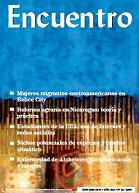Agrarian Reform: Theory & Practice. The Nicaraguan Experience
Resumen
The Nicaraguan experience becomes a valuable case study since it allows us to analyze in detail the impact of an extensive modification to the property right system and to other relevant agricultural markets within a relatively short time period. Moreover, with this evidence it is possible to assess how policy making and enactment alter the institutional and socio-economic scenario and the behavior of agents (regarding their investment and production plans). Our findings indicate that incentives structures and carefully coordinated State intervention are of great importance in achieving sustained development. The Sandinista rural agenda involved detailed structural and marketing programs aimed at eliminating the previous latifundio structure, yet by the end of the 1980´s national agriculture was stagnated. It will be argued in the present paper that the consequences of an uncoordinated Agrarian Reform deepened the imperfections of not only the land market but also the credit and labor markets in Nicaragua. A major conclusion is that without an adequate and legitimate policy environment that reduces uncertainty and maintains financial incentives, even abundant access to resources will not overcome economic paralysis
Descargas
Descargas
Publicado
Número
Sección
Licencia


